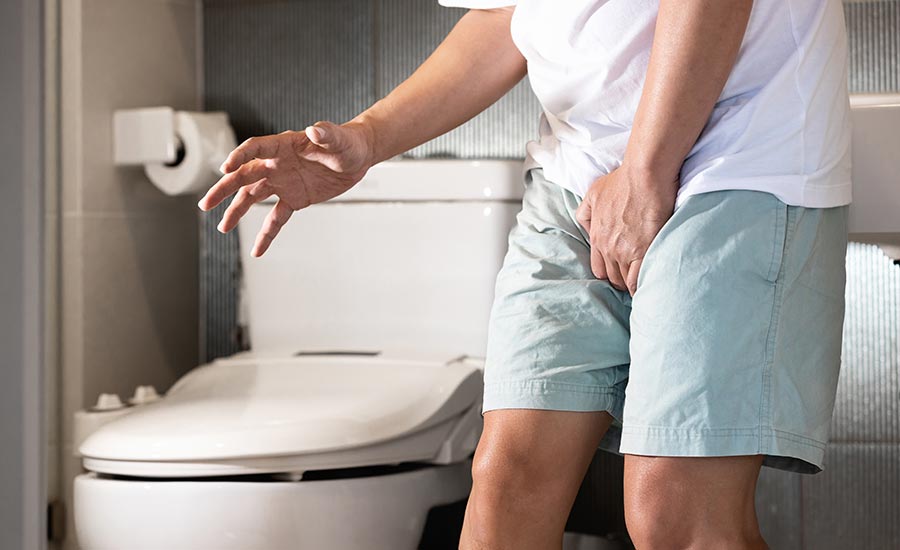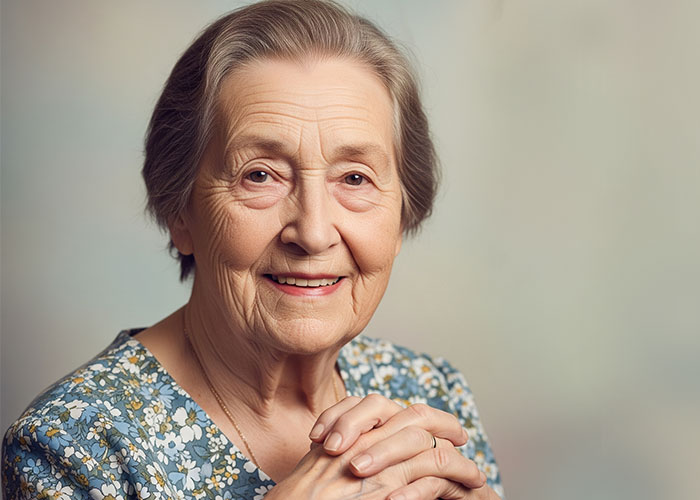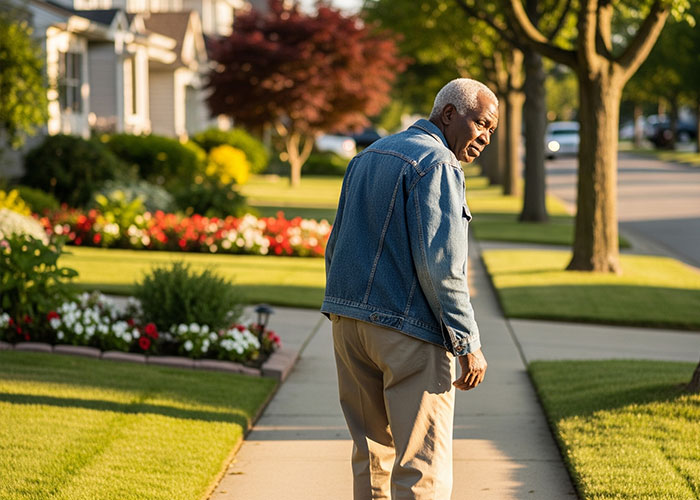How To Manage Incontinence in the Elderly [+ FAQs]
![How To Manage Incontinence in the Elderly [+ FAQs]](https://alwaysbestcare.com/wp-content/uploads/2024/05/incontinence-in-elderly-hero-image.jpg)
As your loved one enters their twilight years, they might face new health challenges, and this can include incontinence.
While incontinence can occur at any age, it’s more common in the elderly.
In this article, we’ll provide tips on how to help your loved one manage incontinence, answer FAQs surrounding this condition, and share how our reliable team at Always Best Care can support you and your loved one during this time.
Table of Contents
What Is Incontinence?
Incontinence in the elderly is the involuntary leakage of urine or feces, a common issue among seniors 65 years or older.
When a person can’t control when they urinate or defecate, it can cause discomfort, inconvenience, and a loss of confidence in social situations.

Types of Incontinence in the Elderly
Incontinence in the elderly can manifest in several types, each with unique characteristics and management strategies.
Common types of incontinence in the elderly include:
- Urge Incontinence: This type occurs when an elderly individual experiences a sudden and intense urge to urinate, followed by an involuntary loss of urine. It’s often associated with conditions such as urinary tract infections, bladder irritations, and neurological disorders.
- Stress Incontinence: This type of incontinence occurs when there’s a physical movement or activity — like coughing, sneezing, laughing, or exercising — that puts pressure on the bladder, causing urine leakage. It’s commonly linked to weakened pelvic floor muscles due to aging or childbirth.
- Overflow Incontinence: This type of incontinence occurs when the bladder doesn’t empty completely, leading to the dribbling of urine. It often arises from bladder damage or blockage, nerve damage, or prostate conditions in men.
- Functional Incontinence: This type of incontinence arises not from urinary tract dysfunction but from physical or mental impairments that prevent timely access to a toilet. Conditions like severe arthritis or dementia can contribute to functional incontinence.
- Mixed Incontinence: This type is a combination of more than one type of incontinence, typically urge and stress incontinence. It includes symptoms of both types, complicating management and treatment.
What Causes Incontinence in the Elderly?
There are different factors that can contribute to incontinence in elderly individuals, such as weakened pelvic muscles, urinary tract infections, and neurological conditions like stroke or Parkinson’s disease that can interfere with bladder control.
In addition, difficulty moving and medications, such as diuretics and antihistamines, can also contribute to how common incontinence is among seniors.
How to Deal with Elderly Incontinence
Managing elderly incontinence effectively involves a combination of medical interventions, lifestyle changes, and practical strategies.
When caring for an elderly loved one with incontinence:
- Schedule regular bathroom breaks for your loved one: Set a consistent schedule for bathroom visits to reduce the likelihood of urinary or fecal incontinence. For example, accompanying your loved one to the restroom every two to three hours can help establish a routine that aligns with their body’s needs.
- Use the right absorbent products: Choose appropriate products for your loved one to help them with incontinence, such as absorbent pads, adult diapers, or protective underwear that fit comfortably and securely.
- Encourage your loved one to maintain a healthy body mass index (BMI): A study found that women aged over 70 found that the likelihood of urinary incontinence — especially stress urinary incontinence — was at least twice as high in those with the highest body mass index (BMI) compared to those with the lowest BMI.
- Motivate your loved one to strengthen their pelvic muscles: Encourage your loved one to perform exercises that can strengthen their pelvis and improve bladder control, such as Kegel exercises. In addition, a physical therapist can provide personalized guidance and monitor your loved one’s progress.
- Encourage your loved one to practice yoga: Encourage your loved one to practice the art of yoga to help them gain more control over involuntary bodily functions like urinary incontinence.
- Cut back on unhealthy liquids: Reduce — or even eliminate — caffeine, acidic foods, and alcohol in your loved one’s diet so they can avoid foods and drinks that may irritate the bladder.
- Prepare a high-fiber diet for your loved one: Consider adding high-fiber foods to your loved one’s meals, such as whole grains, avocados, and artichokes. A high-fiber diet can help with incontinence, particularly in managing fecal incontinence or bowel control issues. Fiber helps to add bulk to stools and regulate bowel movements, making them easier to control.
- Create an accessible bathroom environment for your loved one: Make sure your loved one’s bathroom is easy to access, especially at night. Install night lights to guide the way and remove any obstacles that could cause falls. If mobility is an issue, consider setting up a portable toilet by their side.
- Take note of your loved one’s toileting habits: Keep track of your loved one’s bathroom habits and recommend they use the toilet at times that fit their routine. This can also help you and your loved one’s doctor identify and evaluate issues, such as constipation.
- Inspire your loved one to participate in social engagements: Encourage your loved one to join in daily activities and stay connected with friends and family. This can help them boost their self-esteem and overall happiness.
- Encourage open communication: Discuss incontinence openly and respectfully with your loved one to help reduce any stigma or embarrassment the elderly person may feel. Supportive conversations can also help identify patterns in incontinence that may assist in better management.
- Seek professional help: Consult with your loved one’s healthcare provider to explore all possible causes and treatments for incontinence. This can include medications or physical therapy. Regular check-ups can help manage the condition more effectively and adjust treatments when needed.

How Our Experts at Always Best Care Can Help Your Elderly Loved One with Incontinence
While incontinence may seem like a common issue among the elderly, there are effective treatments that can manage this condition.
At Always Best Care Senior Services, we are dedicated to delivering exceptional health care services for the elderly, including in-home care and respite care.
For over 25 years, our committed team has provided reliable and compassionate senior care across the United States and Canada.
With more than 250 territories in our network, we are well-equipped to offer our clients steadfast dedication and support.
Our services include:
- In-home care: Our team provides continuous care at home, including meal preparation, medication reminders, companionship, and personal hygiene services.
- Skilled home health care services: We offer specialized care for chronic illnesses, creating tailored plans for your loved one’s needs. Available in select areas.
- Specialized home care services: We use advanced tools like balance trackers, emergency response systems, and remote monitoring to support your loved one’s health continuously.
- Respite care services: Whether you need a caregiver for a short time or longer, we can manage your loved one’s care while you handle other responsibilities.
- Dementia care services: We provide compassionate and focused care for individuals with dementia, ensuring their safety, comfort, and well-being.
- Senior living referral services: Let us help you find the best senior living options for your loved one.
- Veterans assistance program: We help veterans obtain financial aid for care, as a token of gratitude for their service.
FAQs About Incontinence in the Elderly
Still curious about incontinence in the elderly? Find the answers to the commonly asked questions below.
- Is incontinence just a normal part of aging?
While incontinence is more common in older adults, it is not an inevitable part of aging. The right interventions can effectively treat or manage many causes of incontinence.
- How is incontinence diagnosed in the elderly?
A primary care doctor or gynecologist can diagnose incontinence in the elderly by reviewing their medical history, conducting physical examinations, and performing diagnostic tests such as urine tests and bladder diaries.
- What treatment options are available for elderly patients with incontinence?
Treatment options vary depending on the type and severity of incontinence and may include lifestyle changes, pelvic floor exercises, medications, and incontinence products, such as pads or catheters.
Behavioral therapies, such as bladder training and scheduled toilet trips, can also help manage incontinence.
- Can lifestyle changes help manage incontinence in the elderly?
Yes, lifestyle changes can significantly help manage incontinence.
These changes can include maintaining a healthy weight, quitting smoking, avoiding alcohol and caffeine, managing fluid intake, and regular physical activity to strengthen pelvic muscles.
- What should caregivers know about managing incontinence in the elderly?
Caregivers should prioritize maintaining a supportive and empathetic approach.
They should ensure their elderly loved one has easy access to the bathroom, use protective garments, and maintain skin hygiene to prevent irritation or infections.
It’s also important to regularly communicate with their loved one’s healthcare providers to adjust care plans as needed.




![10 Senior Living Technologies You Should Know About [+ FAQs]](https://alwaysbestcare.com/wp-content/uploads/2025/06/senior-living-technology-hero-image.jpg)
